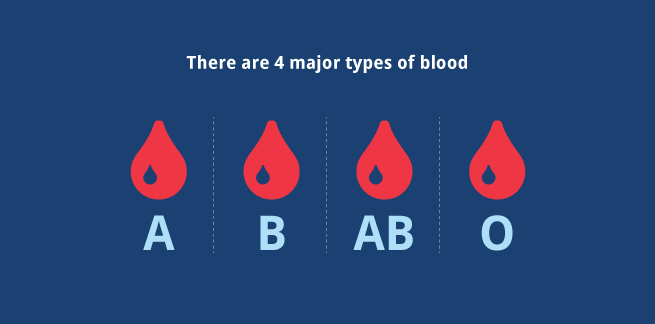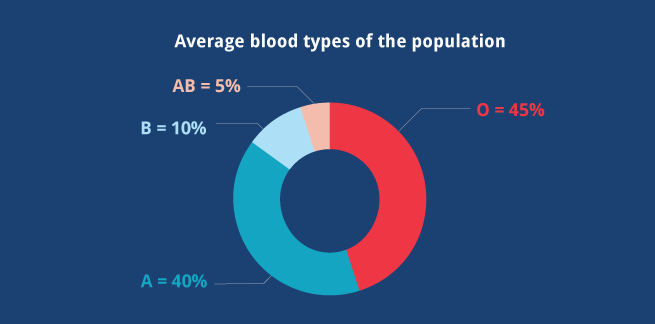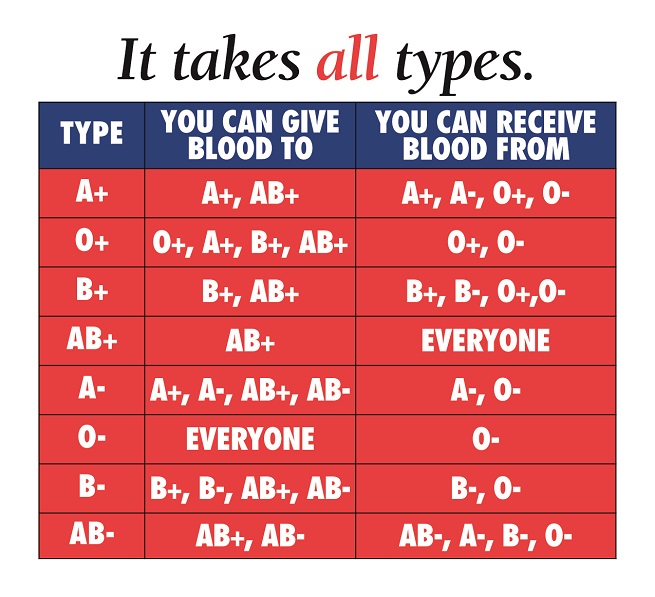What’s Your Type?
Over 100 years ago, it was discovered that people have different types of blood. The major types are O, A, B and AB. For a blood donation to be helpful to a patient, there has to be an appropriate match between the blood type of the donor and that of the recipient. Some types happily mix, while others do not. The common Type O can be safely transfused to patients with O, A, B or AB blood, but Type O patients can only receive blood from other Type O people.

Each major blood group is divided into Rh negative or positive types. On average, 45% of the population is Type O, 40% Type A, 10% Type B, and 5% Type AB. Check the chart to see where you fit in.
Is Your Blood Type Rare?
Sometimes finding compatible blood for someone with rare markers or a rare blood type is challenging. NYBC’s world-renowned team of "match-makers" in our Immunohematology Laboratory search for the most compatible blood for a patient in need. In fact, NYBC has the largest inventory of rare blood types in the U.S.

Almost every day, we receive a call from a hospital trying to locate a rare blood type for a patient. NYBC can quickly retrieve units of rare blood because we classify these units as either Code 99 or Code 96. Code 96 donations lack a particular combination of common markers, while Code 99 donations lack a marker nearly all other people have. Donors who self-identify their ethnicity make classification of rare units even more precise.
Which Blood Types are Compatible?

Is Your Blood CMV Negative?
CMV (cytomegalovirus) is a common virus found in the environment. It can be spread through body fluids, including blood transfusions. About 50% of the general population is infected. It is not a serious infection, except for people who are already in compromised health conditions, such as newborn babies or pregnant women. In these cases, the CMV virus could cause birth defects.
- Doctors request CMV Negative blood for transfusions for newborns or other specific patients where the presence of the CMV virus could cause serious health complications.
- Unlike blood type, CMV status can change over time, so be sure to check your donor card for your CMV status.
